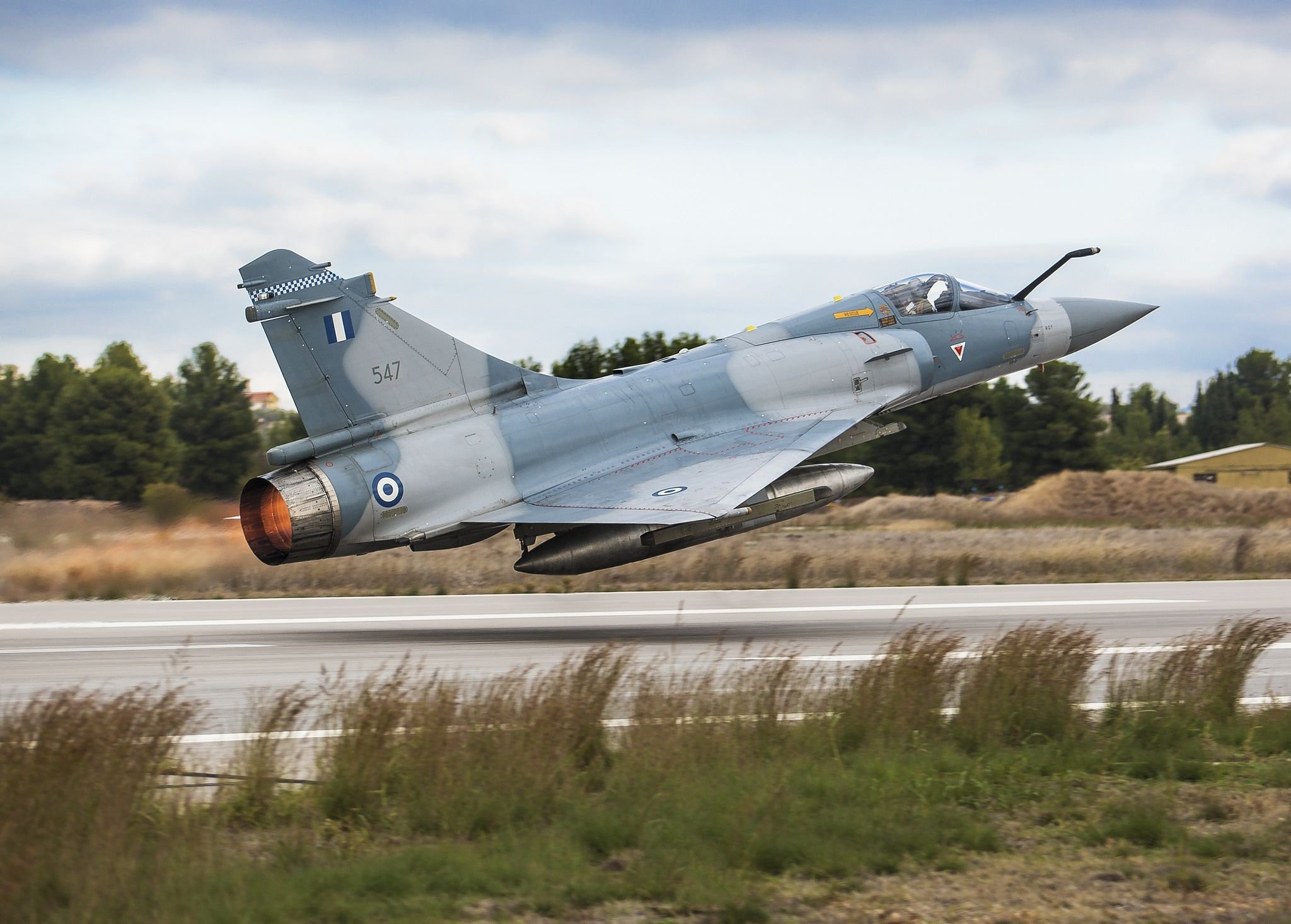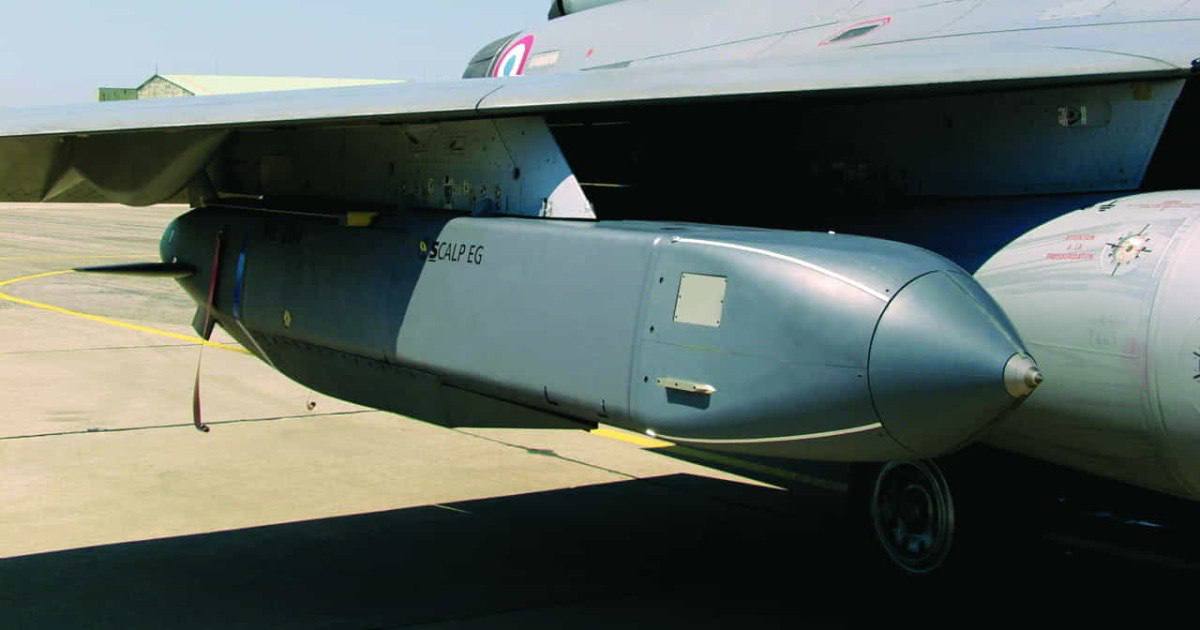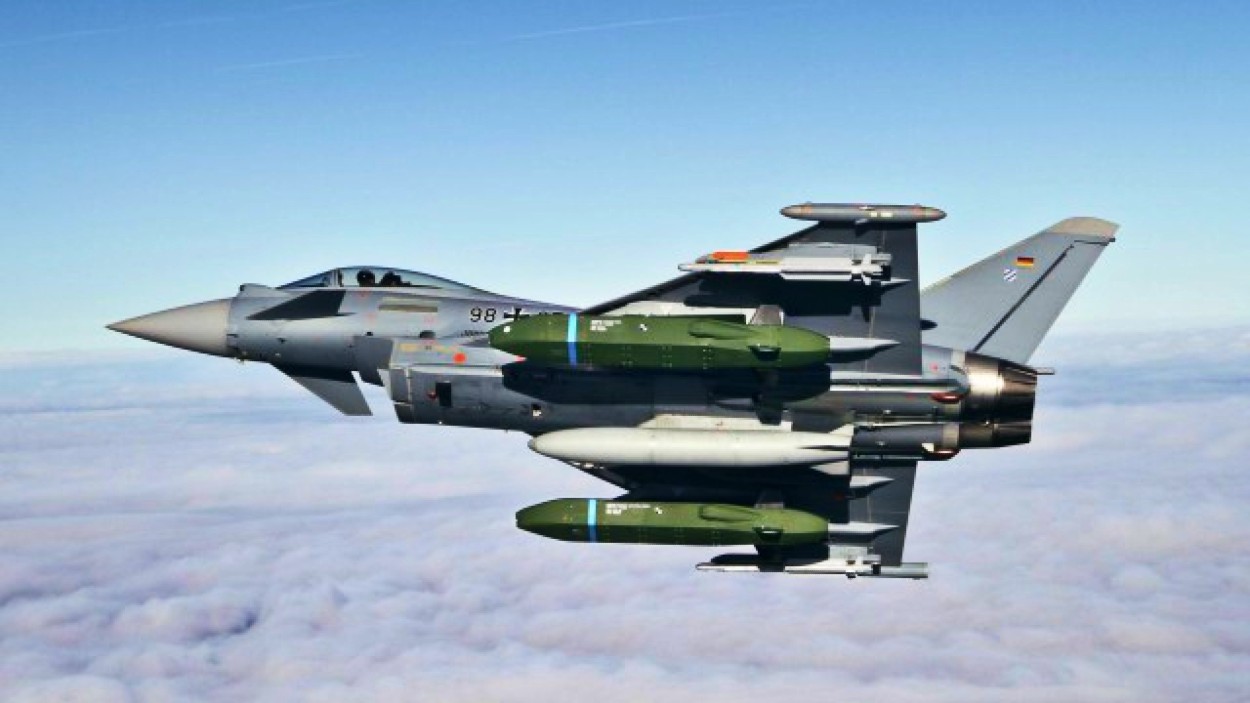France is trying to put together a coalition of Western nations to supply Ukraine with missiles amidst the Russian posturing of a nuclear war. Moscow said that it would unleash a nuclear strike if it is at the receiving end of missiles and bombs supplied by NATO and Western nations.
France has recently transformed its posturing by taking a proactive lead in arming Ukraine, as evidenced in its calls for sending medium and long-range missiles to Kyiv and hinting that it could deploy its own troops in Ukraine. However, despite this, it refuses to throw caution to the wind, as seen in its obvious reticence in sending its Mirage-2000 fighters.
Ukraine recently made its fourth pitch for the French Mirage-2000 fighters, but like the last three times, the recent pitch is not going to materialize into a jet transfer.
At a meeting of the National Assembly Defence Committee, French Defense Minister Sébastien Lecornu said instead of supplying Ukraine with Mirage 2000 fighter jets, France plans to supply the Ukrainian Armed Forces with bombs that can be modified to fit Soviet-built aircraft.
“As for aircraft, we are also trying to do something useful. To be as honest as possible… instead of supplying Mirage 2000 jets, which we have very few of and whose maintenance would be very difficult, we decided to start general pilot training,” he told the committee.
Lecornu said that France did not stop there since “We have invested money and engineering developments to adapt A2SM (air-to-surface) bombs to the generations of Soviet-made Su-24 and MiG-29 aircraft that Ukraine has.”

Lecornu emphasized that the monthly delivery of fifty A2SM bombs—compatible with Soviet aircraft—to Ukraine changed the game. That, above all, was the crucial aspect. Talks about aircraft follow, “but it’s never the central point on which we focus.”
The assertion comes as Ukraine has intensified calls for long-range missiles that would allow it to hit targets deep inside Russian territory. While the French President is taking the lead in Europe to arm Ukraine’s forces with the capability, the German Chancellor remains reluctant to send the long-range Taurus cruise missiles to Kyiv.
On February 26, French President Emmanuel Macron reportedly announced that a new coalition would be formed to supply Ukraine with “medium and long-range missiles and bombs.” The idea of this coalition seems to follow international coalitions cobbled together to arm Ukraine with equipment like Main Battle Tanks (MBTs), fighter jets, and air defense systems.
Macron gathered 20 heads of state from Europe and other Western officials for a summit on Ukraine in Paris. The leaders in attendance included those from the Baltic states, along with Polish President Andrzej Duda and German Chancellor Olaf Scholz.
France, for one, has already supplied long-range SCALP-EG missiles which are analogs of the British Storm Shadow. The French missiles have been used with a high degree of success, obliterating some of Russia’s strategic assets in occupied Ukrainian territories. Last month, the French Defense Ministry announced that it would send 40 more Scalp-EG cruise missiles and hundreds of air-to-ground guided missiles to Ukraine.

Painting a rather grim picture, Macron stressed that Russian defeat was imperative for security and stability in Europe. In what may be a first, he also hinted that France could send troops to Ukraine. Although “no consensus” existed about the deployment of Western ground forces in Ukraine, “nothing should be excluded.”
“We will do whatever it takes to ensure that Russia cannot win this war,” he added.
However, the enthusiasm about sending long-range missiles did not quite resonate with another Ukrainian ally, Germany, present in the meeting. Ukraine has been requesting Germany for the Taurus missiles for months, only to be met with stiff reluctance from the Scholz administration.
Amid intensifying calls in his own country to sign off on the transfer of Taurus long-range missiles to Ukraine, Olaf Scholz reiterated on February 26 that he was hesitant to deliver the long-range cruise missiles due to the possibility of Berlin getting embroiled in the conflict with Moscow.

Germany is increasing its military assistance to Ukraine this year, making it the second-largest donor after the US, even as it has been holding up Ukraine’s request for Taurus missiles for months. These missiles have a maximum range of 500 kilometers (310 miles) and could theoretically be used to strike targets that are located far within Russian territory.
In addition to calling the Taurus “a very far-reaching weapon,” Scholz stated, “What is being done in the way of target control and accompanying target control on the part of the British and the French can’t be done in Germany. Everyone who has dealt with this system knows that.”
Further, in a contrasting approach from his French counterpart, the German Chancellor once again asserted that no German soldiers would be sent to Ukraine and that he was determined to support Ukraine without prolonging the conflict and enlisting Germany and NATO.
Without mincing any words, he noted that there were valid reasons why the missiles were not the next course of action. “This clarity is necessary. I am surprised that this doesn’t move some people, that they don’t even think about whether, as it were, a participation in the war could emerge from what we do.”
Since the Ukraine war has essentially turned into a war of attrition with no end in sight, the Kyiv administration has called on its Western allies to aid it with long-range missiles that would tilt the balance in its favor against Russia. On February 24, Ukrainian President Volodymyr Zelensky reassured that his forces would not target inside Russian territory with long-range missiles.
Germany believes this is a risk it cannot afford despite being one of the top suppliers of military equipment to Ukraine in the ongoing war. The concerns within the Olaf Scholz administration may make sense when taken along with the blatant nuclear threats issued by Russia, which believes that such aid would amount to NATO entering the war.
Nuclear Threat from Russia is Never off the Table
A former president and close ally of Vladimir Putin forewarned the West on February 26 that Russia was capable of unintentionally sparking off a nuclear conflict without making any direct references to a specific trigger, the Daily Mail reported.
Referring to European heads of state aiding Ukraine, Dmitry Medvedev, now deputy head of Putin’s security council, said ‘impotent’ Western leaders were misjudging the possibility of nuclear war as an accident that may be catastrophic as well as a calculated decision by Putin.
“This very clock, which is ticking in a certain direction, has accelerated very much,” Medvedev said, pointing to the “obvious threat to all of humanity. And in this, I also see the inability, excuse me, the impotence of these Western authorities.”
“[They] keep saying the same thing: ‘No, it’s the Russians who are scaring us, they will never do it’. They’re wrong,” he added.
This is not the first time that Dmitry Medvedev has issued nuclear threats. Last month, he issued a stern warning saying Moscow would be forced to retaliate with nuclear weapons if Ukraine attacked missile launch facilities inside Russia using weaponry provided by the US and its allies.
“What does this mean? It means only one thing – they risk running into the action of paragraph 19 of the fundamentals of Russia’s state policy in the field of nuclear deterrence,” Medvedev wrote on the Telegram messaging app. “This should be remembered,” Medvedev said.
The circumstances under which a Russian president would consider using a nuclear weapon are outlined in paragraph 19 of Russia’s 2020 nuclear doctrine. These circumstances include, but are not limited to, an attack using nuclear or other WMDs or the use of conventional weapons against Russia “when the very existence of the state is put under threat.”
These threats are largely believed to be hollow since the decision to use a nuclear weapon against a hostile country was with the Russian President, Vladimir Putin.
Intriguingly, following Medvedev’s threat, a video was published on Platform X in which Vladimir Putin is seen threatening European countries saying that if Ukraine was to join NATO or if it attempted to bring Crimea back into Ukraine with military means, the NATO countries would automatically become a party to the war.
Putin is making it very clear without saying it explicitly, so I'll clarify
If the West proceeds to add Ukraine into NATO it will lead to nuclear war
Are you ready to die to defend Ukraine? I'm not. This needs to be de-escalated immediately.pic.twitter.com/30nxc9hnM5
— Clint Russell (@LibertyLockPod) February 26, 2024
In his subtle nuclear threat, Putin could be heard stressing that while the potential of NATO and Russia were incomparable, his country was a leading nuclear state and also outperformed others in several components. He then warned, “There will be no winners,” hinting at a possible nuclear strike.
“You will be pulled into this conflict against your will. You won’t even have time to blink when you execute Article 5.” He then referred to the French President, saying that “he doesn’t want it.”
Since the video was published, it was shared widely creating a sense of hysteria among military watchers. However, fact-checking revealed that these remarks were made by Putin on February 8, 2022, several days before the invasion was launched on February 24.
Russia, however, has continued to engage in what Western commentators term as unwarranted nuclear saber-rattling. For instance, three days into the invasion, Putin declared on February 27, 2022, that the Russian nuclear forces were in a state of “special combat readiness.”
Several controversial Russian political figures and media persons have since engaged in similar rhetoric, threatening a nuclear retaliation if European countries, including France, Germany, and the UK, were to cross the red line.
In October last year, the Kremlin claimed that Russia has practiced delivering a “massive” nuclear assault. At that time, Russian Defence Minister Sergei Shoigu said that the military drill featured providing a “response to an enemy nuclear strike.” He was seen on State TV briefing President Vladimir Putin about the simulation.
These nuclear threats are regularly lambasted by Western officials and leaders who are also apprehensive that they could become a party to the Ukraine war. While the US, France, and the UK have largely ignored these warnings as mere posturing, Germany seems to be keeping its guard up.
As France gears to supply more medium and long-range missiles, Germany has decided to stick with its traditional reticence to prevent any escalation with Russia.
Concluding his remarks at the Paris Meet on February 26, Macron said, “Today, the initiatives we have launched will be put on the table, and in 10 days, you will have a clear answer with a serious agenda,” Macron said.
- Contact the author at sakshi.tiwari9555 (at) gmail.com
- Follow EurAsian Times on Google News




